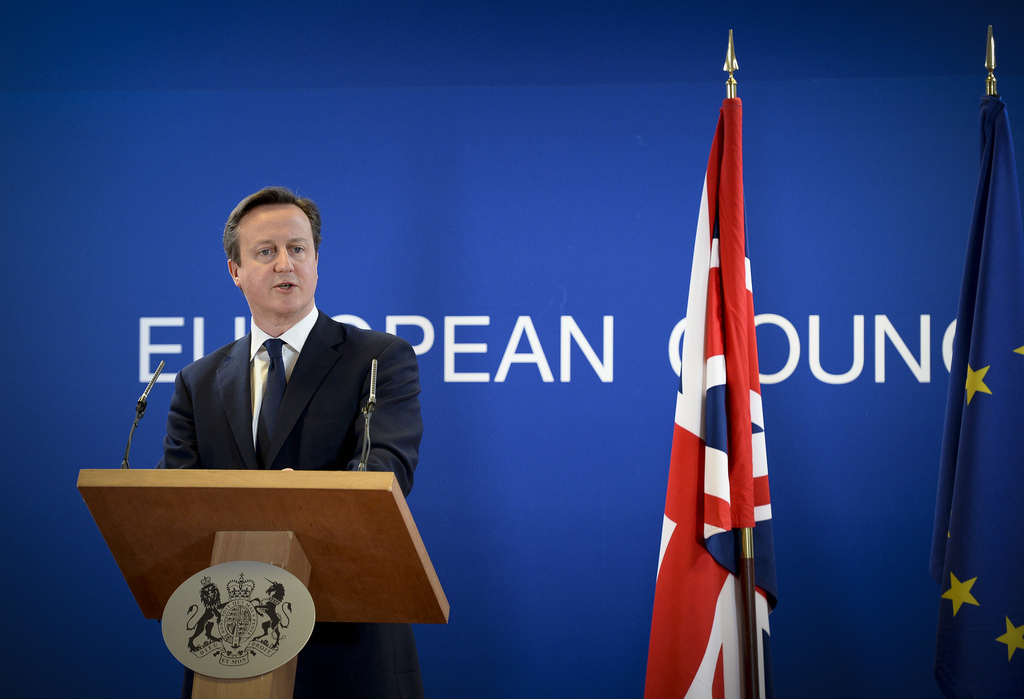
Social media is changing our digital news habits – but to varying degrees in US and UK
Digital technology has dramatically reshaped the news and media industries in the past decade. We’ve left behind a world where established news brands could rely on reaching large audiences and hence secure advertising revenues. Now there is huge uncertainty about business models, even as digital gives consumers more convenient access to news than ever before. The emergence of new players, including BuzzFeed and The Huffington Post, coupled with the growth of social networking, the introduction of smartphones and the evolution of online advertising, have contributed to a media landscape that is changing at considerable speed. We’ve been tracking the ways in which news habits online have been changing since 2012, when we launched our first survey from the Reuters Institute …

The referendum on EU membership: a very British affair
The UK referendum on EU membership may be many months away but with David Cameron laying out his stall with other European leaders, we should be clear that we are embarked on the journey and already some way down the track. It is easy to think of referendums as one-shot deals but in reality they are not. Rather, referendums are long-term games and in this case the game was started in 2013. And it’s easy to think of this as a European process, but whatever grand meals may be consumed in other European capitals, this is very much a result of domestic British politics. The EU referendum is largely down to domestic drivers and the result will likely be shaped as much by the party politics between and within UK parties as by European factors.

Forecasting elections with social media? Yes, we can. Almost…
With the failure of traditional forecasting methods to accurately predict the outcomes of the UK General Election of May 2015, can social media based predictions do any better? In this article, Andrea Ceron, Luigi Curini, and Stafano M. Iacus (University of Milan and VOICES from the Blogs) find that supervised and aggregated sentiment analysis (SASA) applied in proportional electoral systems produces the most accurate forecasts of election results.
Launch of current issue of the St. Antony’s International Review (STAIR): “Power, the State and the Social Media Network”
The St Antony’s International Review (STAIR) is proud to announce the publication of its 16th issue, “Power, the State, and the Social Media Network”. The issue is available on IngentaConnect. The launch event will take place on 6 March at 6.30 pm in the Oxford Department for Politics and International Relations. In the themed section of this edition of STAIR five authors seek to shed light upon the contemporary relationship between power, the state and social media, perhaps the most pronounced and widely disseminated digital social technology the world has encountered. Supporting and affecting political movements from New York’s Zuccotti Park and Egypt’s Tahrir Square, “Facebook revolutions” and “Twitter revolutions” are conceived of as borne out of social media networks; they oscillate between the Charybdis of an anarchic freedom and the Scylla of surveilled repression, utilized by both citizens and the state. With such power, social media now holds the potential to empower and propagandize, secure and surveil, to create, and to destroy.

Slackers and Saviours, Kony 2012
Much has been said of the viral Kony 2012 campaign, ‘a film and campaign by Invisible Children that aims to make Joseph Kony famous… to raise support for his arrest and set a precedent for international justice’. The last page of the Invisible Children Kony 2012 action booklet reads, ‘Joseph Kony is the worst living criminal…He remains at large because he is invisible to the world. Few know his name, even fewer know his crimes. This year we are making Joseph Kony famous, because when he is, the world will unite for justice and demand his arrest’. The Campaign The campaign kicked off with the release of a (painfully narcissistic) 30-minute film that grossly oversimplifies the conflict and the actors. …

KONY 2012: the latest source of armageddon fatigue
Social media has contributed to some of the largest political events of the last couple of years. It aided the Arab Spring, has been a constant thorn in the side of the Chinese authorities, has given Vladimir Putin and Mahmoud Ahmadinejad slight cause for concern, and it helped to organise the less-constructive London riots. The latest social media innovation is KONY 2012 by the advocacy group “Invisible Children.” The campaign, which went viral this week, is aimed at stopping Joseph Kony, the Ugandan-born leader of the Lord’s Resistance Army. The immediate relevance of this campaign has nothing to do with the issue itself, but with the response that it has received. My own knee-jerk reaction when I noticed that a …









